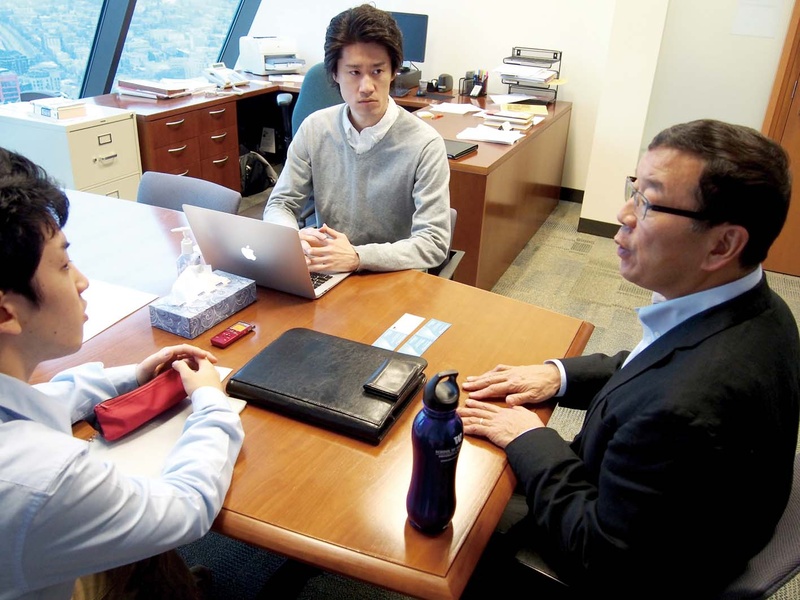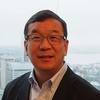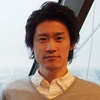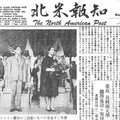When two unique things like California rolls come together, something is born. These things give birth to new common sense, and even if they don't change the world, they may have a major impact on someone's life. The encounter between a Japanese person and a Japanese student studying abroad is surely one such example. A Japanese person who grew up and was educated in the United States, and a Japanese student who was raised with a Japanese education and experienced culture shock in the United States. We asked them to exchange opinions about their common interest: Japan.
Differences between Japan and the United States
John Okamoto: I think Japan is made up of similar people, values, language, and upbringing. On the other hand, America is made up of people from different countries who came here in search of a better life. It is a mix of cultures, different backgrounds, values, and religions. It has also developed with a common interest in increasing our own and our family's wealth. I think this is the big difference between the two countries.
America has to work hard to reaffirm our common purpose because we are a diverse mix of people, and there are conflicts over race, economic class, etc.
Japan is made up of people with similar backgrounds, languages, upbringings, and generally religious traditions, so there are more common ideas and practices than in the U.S. In business, Japan's perceptions, practices, and values make it difficult to accept people from outside or challenging ideas that would change traditions.
In the US, there are many different kinds of people from many different places, so new ideas are constantly being born. On the other hand, I think Japan has a stronger sense of common purpose and provides more generous social security (civic duty) to care for the elderly and infants than the US.
Kondo Kosuke (hereafter Kondo): I agree with Mr. Okamoto. I think the United States is a country where various cultures blend together. I like the culture of Silicon Valley and Seattle. People there, like Google, Facebook, and Apple, are challenging themselves to do new things and create innovations to make the world a better place. This is one of the strengths of the United States.
On the other hand, unfortunately, it is true that there are disparities in poverty. There may be children who are willing to learn but are unable to receive an adequate education due to financial difficulties.
The Japanese are good at improving products and services. However, they struggle to produce as much innovation as the United States due to culture, social concepts, and education. This is Japan's weakness. The Japanese government has begun efforts to change Japanese practices to make Japan a country where startups are born, but the road is difficult.
Okamoto: I think failure is more damaging in Japan. The fear of failure is a barrier to taking risks and innovating, because all innovation involves failure. Japanese cultural norms and values also act as barriers.
There is a lot of rigid and inflexible thinking in Japan. What do you think about this?
Okamoto: I think Japan is starting to change, especially your generation. After the Great East Japan Earthquake, I think people are reassessing how they view Japan and themselves.
Thirty years ago, when I first came to Japan, I felt that I was not accepted because I had long hair and wore very colorful clothes and was treated like a bad person.
Japan today is very different from back then. I think it has become more tolerant of foreigners, accepting and respecting differences. I would say it recognizes itself as part of the international community.
Toshiya Suzuki (hereinafter Suzuki): Japan is currently facing a serious problem of population decline. As a result, there is active discussion about accepting immigrants. You said that Japan is changing, but in that respect, I think Japan is still quite closed off.
Personally, I think that even if the Japanese government actively tries to accept immigrants, it will fail due to cultural differences. Have you ever felt that Japan is hesitant to accept foreigners?
Okamoto: My personal view is that it is gradually decreasing, but we are clearly facing problems with immigration and labor shortages.
Let me give you an example of a country of immigrants. Singapore is a small, resource-poor country. Their only resource was a place to trade. But they attracted talented people from all over the world who helped run the Singaporean economy.
It may be more difficult in Japan than in other countries, but we can run the country with talented people, including women in Japan. It is true that there are various obstacles to hiring women and promoting them to senior positions.
Kondo: Japan is facing several challenges. The biggest problem is population decline and aging. One solution, as Okamoto-san mentioned, is to encourage more women to enter the workforce. Gradually, the number of working women will increase.
In Singapore, the educational level of both men and women has improved, and many women are working. The number of children has decreased, but the Singaporean government's immigration policy has made up for this. I believe that Japan cannot achieve a bright future unless it accepts immigrants.
Isn't it difficult to accept immigrants from the perspective of people's mindset?
Kondo: One solution is to increase the number of people studying abroad. Studying abroad can change your perspective and way of thinking. And to welcome more tourists from abroad. Then Japan will gradually get used to welcoming foreigners.
Okamoto: That's not easy. There is a lot of cultural diversity in the United States, and there is opposition to bringing in outside labor.
There is also a fear that if Japan accepts immigrants, their jobs will be taken away.
Okamoto: The same thing can be said about the current situation where a large number of immigrants from Mexico are flowing into the United States. Accepting immigrants creates the idea that they will take away jobs. Just like when immigrants from Japan and China came to the United States, there was a fear that they would take jobs away from white people. At that time, the U.S. government enforced various regulations on them. This is what happens when you accept immigrants. Therefore, a lot of effort and tolerance are required.
How can you change your mind?
Kondo: I think it's about studying and working harder than others. Japanese people are protected by the language barrier. But if we look outside, it seems like people in China and India are more hardworking than Japanese people. Being hardworking affects everything, including diplomacy and the economy. That's why Japan's influence in the world is declining. We Japanese people need to study harder. And not just at our desks.
[Interviewer profile]
John Okamoto
Third generation Japanese American. Special Planning Advisor for the City of Seattle. Master of Public Administration from the University of Washington. Has held key positions at Seattle City Hall, Washington State Department of Transportation, Seattle Port Authority, and Washington State Teachers Association. While working at the Seattle Port Authority, visited Japan twice a year. Participated in the Japanese American Leadership Mission in 2010.
Kondo Kosuke
After leaving a Japanese trading company where he had worked for over six years, he went to Seattle to study abroad in March 2014. He took certificate classes in English and business at the University of Washington, and in June of the same year, he founded "Arch for Startup," a student organization linking Seattle and Japan, together with other Japanese students in the same study abroad program.
Toshiya Suzuki
He majored in civil engineering at the University of Tokyo Graduate School, then took a leave of absence to study abroad in Seattle in March 2014. He took certificate classes in English and business at the University of Washington, and in June 2014, launched Arch for Startup with other Japanese students in the same study abroad program.
*This article is reprinted from the February 26, 2015 edition of the North American Post (Vol. 70, Issue 10).
© 2015 The North American Post









